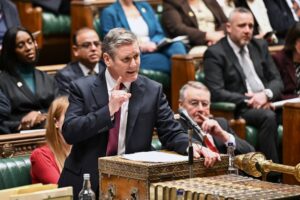Little Christmas cheer for councils in 2018 finance settlement
 The Department for Communities and Local Government today announced its funding plans for councils for 2018-19.
The Department for Communities and Local Government today announced its funding plans for councils for 2018-19.
Councils will be able to raise council tax by a further 1% next year and the sector will retain 75% of business rates by 2020-21.
A consultation on the funding of local government was announced, with plans for a new methodology to be implemented in 2021.
Announcing the provisional local government finance settlement, communities secretary Sajid Javid said that he recognised the pressures facing councils, saying that the settlement gives more flexibility and greater control over the money they raise to address local needs.
‘This strikes a balance between giving councils the ability to make decisions to meet pressures and ensure that the most vulnerable in society get the support they need while protecting residents against excessive council tax bill rises.’
But many councils and local government bodies were quick to criticise the settlement, which will see government face an overall funding gap of £5.8bn by 2020, according to the Local Government Association, leaving many services at tipping point.
Lord Porter, chair of the LGA, said: ‘Years of unprecedented central government funding cuts have left many councils beyond the point where council tax income can be expected to plug the growing funding gaps they face. While some councils will receive extra funding next year the government needs to provide new funding for all councils over the next few years so they can protect vital local services from further cutbacks.’
While he welcomed plans for local government to retain more of its business rates income, Lord Porter said that this should not go towards meeting the funding gap facing local government.
Adam Lent, director of the New Local Government Network said that the statement was ‘an annual reminder of how broken the system of financing local government is’. While he welcomed the clarity on business rates retention he said that the government needs to ‘pursue much more ambitious fiscal devolution, which is the norm in most advanced western countries, in order to ensure local services are self-sufficient and sustainable in the future’.
The chairman of the County Councils Network Paul Carter said he was disappointed that there will be no extension of the transitional grants programme, which has helped many rural county councils to safeguard their services.
He said that an additional 1% on council tax is no substitute for ‘genuine new funding.’
But he welcomed the publication of the long-awaited fair funding review consultation and the announcement of the first county council business rates pilots. The ten new areas selected for business rates pilots include Leeds, Lincolnshire, Derbyshire, Suffolk and Surrey.















